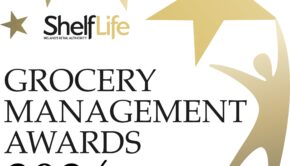Tesco sets out new group-wide net zero target of 2035

Retailer also sets out group-wide commitment to cut emissions from its supply chain and products to zero by 2050
28 September 2021
In a move to strengthen its ambition to tackle climate change, Tesco has announced a new group-wide net zero target of 2035 for its own operations, including Ireland.
The retailer has also set out a commitment to cut emissions including those generated by the products it sells and across its supply chains to zero by 2050, in line with the UN’s aspiration of keeping global warming below 1.5C.
Often referred to as Scope 3 emissions, Tesco’s 2050 commitment will cover all emissions generated across its entire value chain. This includes the sourcing of raw materials and food production, where emissions are generated through agriculture and manufacturing; in the use of Tesco products, including food waste; and in people’s dietary choices, where an increase to more plant-based food is required to cut emissions.
Emissions from Tesco’s products and supply chain make up more than 90% of the retailer’s total emissions footprint. To date, 100 of Tesco’s largest international suppliers have already reduced manufacturing emissions by 20%. The retailer has now written to all of its suppliers to ask for their support in the transition to a low carbon economy.
To date, Tesco Ireland has made progress on reducing emissions in its own operations by reducing its electricity consumption by 25%, sourcing all its electricity from renewable sources as well as substantial changes to lighting, heating, ventilation, and refrigeration in its store estate.
Over the next 12 months, Tesco says it will set out a clear plan for achieving its new targets, including detailed decarbonisation roadmaps for some of its key emissions areas, such as product manufacturing.
Activities include:
- Supporting all suppliers to establish a net zero ambition and set science-based targets
- Accelerating operational decarbonisation across key emissions hotspots such as refrigeration, heating and transport
- Trialling innovations with suppliers to reduce emissions, including the use of low-carbon fertiliser and alternative animal feed such as insect meal
- Cutting emissions associated with customers’ diets, including increasing the sales of plant-based products
- Advocating for collaborative industry action and support from Government
Minister for the Environment, Climate and Communications, Eamon Ryan welcomed Tesco’s commitment in advance of the COP26 summit on climate and “urge[d] them and their suppliers to follow through”.
“Consumers want to do the right thing for the planet, and they need businesses to step up to the mark and make that possible,” Minister Ryan said. “Actions such as this will also support our long-term competitiveness and create new jobs in the green economy.”
Tesco Group CEO, Ken Murphy said the new commitments “will bring an unprecedented level of transparency to our emissions footprint and will allow us to identify and tackle those areas where urgent transformational change is needed”.
“As the first retailer in Ireland to set the ambition to achieve net zero emissions in our own operations by 2035 and in the value chain by 2050, we are setting unprecedented ambitions for our industry,” said Tesco Ireland CEO, Kari Daniels.
“Emissions from our supply chains and the use of our products account for most of our emissions,” Daniels added. “It’s vital we continue the good work in our own operations but also drive collective action and collaboration with our suppliers, and industry, to succeed in meeting these commitments.”
“We’re encouraged that 100 of our largest international suppliers have already reduced manufacturing emissions by 20%, but we know we all have further to go. We are encouraging our supply base to engage with us to set out a roadmap to work towards these targets and support the transition to a low carbon economy.”



 Print
Print






Fans 0
Followers